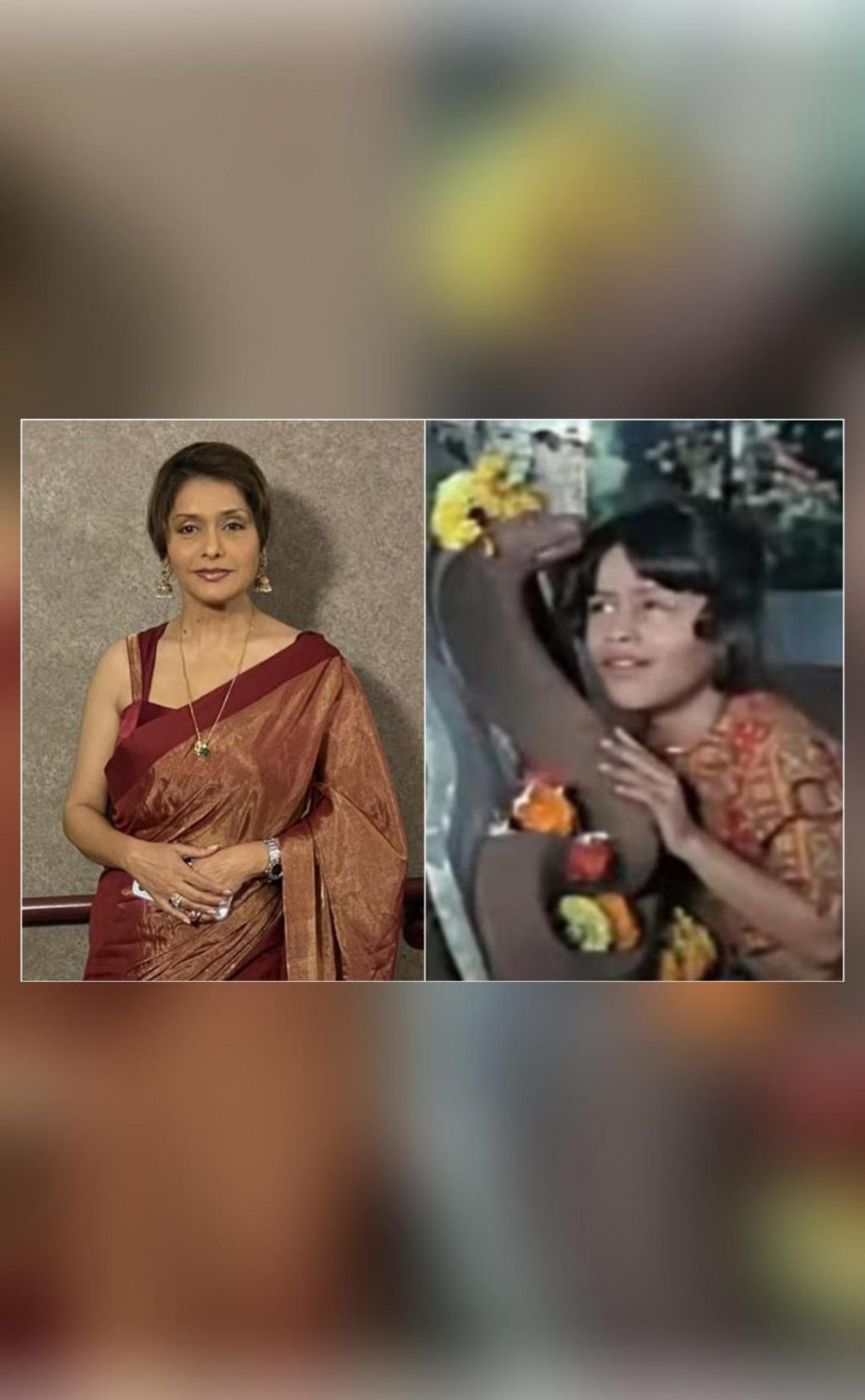
Director slapped me to make me cry for a scene when I was 4 yrs old: Pallavi Joshi
Childhood memories are often cherished and fondly remembered. However, for actress Pallavi Joshi, one particular memory from her early days in the film industry is not so rosy. In a recent revelation, Pallavi Joshi, who debuted in the 1973 film ‘Naag Mere Saathi’ at the tender age of four, shared a shocking experience where she was physically slapped by director Shantilal Joshi to make her cry for a scene.
Pallavi Joshi’s debut film ‘Naag Mere Saathi’ was a Hindi fantasy film directed by Shantilal Joshi, who was also her father. The film was released in 1973 and was a moderate success. However, Pallavi’s journey in the film industry was not without its challenges, as she recently revealed that her father, the director, was forced to slap her to make her cry for a scene.
In an interview, Pallavi Joshi shared the traumatic experience, “They took several takes, but I kept laughing. I didn’t understand why I had to cry and why I couldn’t just smile. After several failed takes, Shantilal lost his cool, walked up to me, and slapped me.” The 51-year-old actress still remembers the incident vividly, “I was only four years old, and I didn’t know what was happening. I just knew that I was being slapped.”
Pallavi Joshi’s revelation highlights the dark side of the film industry, where child actors are often subjected to physical and emotional abuse to get the desired performance. The incident also raises questions about the kind of environment that existed on sets during that time and whether there were any measures in place to protect child actors.
It’s unfortunate that Pallavi Joshi had to go through such a traumatic experience at such a young age. However, it’s heartening to know that she has spoken out about it to raise awareness about the importance of child protection and the need for a safer and more compassionate film industry.
Pallavi Joshi’s story is a stark reminder of the challenges that child actors face in the film industry. Child actors are often exposed to harsh conditions, long working hours, and physical and emotional abuse. They are also often expected to perform complex scenes without any guidance or support.
In recent years, there have been several instances of child actors sharing their own traumatic experiences in the film industry. These stories have sparked a much-needed conversation about the need for better protection and support for child actors.
The film industry has a responsibility to ensure that child actors are protected from physical and emotional abuse. This includes providing a safe and supportive environment on sets, ensuring that child actors are not subjected to excessive working hours, and providing them with proper guidance and support.
Pallavi Joshi’s story is a wake-up call for the film industry to take child protection more seriously. It’s time for the industry to acknowledge the trauma that child actors have faced and to take concrete steps to prevent such incidents from happening in the future.
Pallavi Joshi’s revelation has also sparked a debate about the kind of roles that child actors should be given. Child actors should be given roles that are suitable for their age and abilities. They should not be forced to perform complex or mature scenes that can be traumatic for them.
In conclusion, Pallavi Joshi’s story is a powerful reminder of the importance of child protection in the film industry. It’s time for the industry to take concrete steps to prevent such incidents from happening in the future and to ensure that child actors are protected from physical and emotional abuse.






